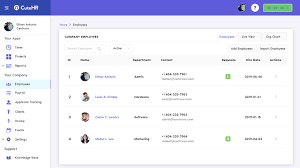Structured Settlement Loan: How It Works & What You Need to Know Before Applying

If you’ve received a structured settlement as a result of a personal injury lawsuit, workers’ compensation claim, or other legal judgment, you likely get payments in scheduled intervals—monthly, quarterly, or annually. While these payments offer long-term financial stability, life doesn’t always wait. You may face urgent expenses like medical bills, debt repayment, home repairs, or education costs. That’s where a Structured Settlement Loan comes in.
Many people turn to a Structured Settlement Loan as a way to access a lump sum of cash in exchange for their future settlement payments. But before making that decision, it’s crucial to understand how these loans work, their risks, the legal process involved, and whether this option is right for your financial situation.
What Is a Structured Settlement Loan?
Technically, a Structured Settlement Loan isn’t a traditional loan. Instead, it’s a financial transaction where you sell some or all of your future settlement payments to a third-party company in exchange for immediate cash. The term “loan” is commonly used, but it’s more accurate to call it a structured settlement advance or cash-out agreement.
Because structured settlements are protected under both state and federal laws, selling them requires court approval. This legal safeguard ensures that you fully understand the financial trade-offs and that the transaction is in your best interest.
Why Do People Seek a Structured Settlement Loan?
There are several reasons people pursue a Structured Settlement Loan:
-
Unexpected medical bills or emergencies
-
Paying off high-interest debt
-
Buying a home or car
-
Funding education
-
Starting a business
-
Avoiding foreclosure or eviction
While these are all legitimate needs, it’s important to carefully consider whether selling your future payments is the best solution. In many cases, financial alternatives may offer better long-term stability.
How Does a Structured Settlement Loan Work?
Understanding how a Structured Settlement Loan works is crucial. Here’s the basic process:
-
You contact a settlement purchasing company: These firms specialize in buying structured settlements.
-
You choose how many payments to sell: You can sell a portion or all of your remaining payments, depending on how much money you need now.
-
The company evaluates your settlement: They calculate the present value of your future payments and offer a lump-sum amount.
-
You review and sign the agreement: It’s essential to consult an attorney or financial advisor before signing.
-
Court approval is required: A judge will review your case to ensure the transaction is in your best interest.
-
Once approved, funds are released: After approval, you receive the agreed-upon lump sum, typically within a few days.
Key Considerations Before Getting a Structured Settlement Loan
Before entering into a Structured Settlement Loan, consider the following factors:
-
Discount Rate: This is the rate used to determine the present value of your future payments. A higher discount rate means you’ll receive less money upfront.
-
Loss of Long-Term Security: Selling your payments may solve immediate issues but can reduce long-term financial stability.
-
Fees and Charges: Some companies include administrative fees that can reduce your total payout.
-
Court Involvement: Unlike typical loans, this process involves legal scrutiny. You may be required to explain your reasons for needing the money.
When exploring Structured Settlement Loan options, always request full disclosure of terms and fees before proceeding.
Alternatives to a Structured Settlement Loan
While a Structured Settlement Loan offers fast cash, it’s not your only option. Consider these alternatives:
-
Personal Loans: If you have good credit, a personal loan may be cheaper and easier to manage.
-
Home Equity Loans: Homeowners can tap into their equity to cover expenses.
-
Borrowing from Friends or Family: This can offer flexibility without the high fees or loss of future payments.
-
Financial Counseling: A credit counselor can help you budget and manage debt without selling your settlement.
Weigh all available options before committing to a Structured Settlement Loan, especially if the need is not urgent.
Pros and Cons of Structured Settlement Loans
Pros:
-
Immediate Access to Cash: You get a lump sum when you need it most.
-
No Monthly Repayment: Since you’re selling future payments, there’s no traditional loan repayment.
-
Flexible Options: You can sell part or all of your settlement.
Cons:
-
Loss of Future Income: You give up long-term financial security for short-term needs.
-
High Discount Rates: You may receive significantly less than the total value of your settlement.
-
Court Approval Required: Not all requests are approved, especially if the judge determines it’s not in your best interest.
Understanding both sides of the equation is a key step in deciding whether a Structured Settlement Loan is right for you.
Legal Requirements and Protections
Because selling structured settlements affects your future income, federal and state laws require court oversight. The Structured Settlement Protection Act (SSPA) mandates that:
-
The sale must be voluntary
-
The seller must receive independent legal or financial advice
-
The court must determine that the sale is in the seller’s best interest
This legal structure is designed to protect consumers from predatory practices. Still, not all companies operate with integrity, so choose a reputable buyer.
How to Choose a Reputable Structured Settlement Loan Company
If you decide to pursue a Structured Settlement Loan, choosing the right company is critical. Look for:
-
Transparent Terms: A reputable company will clearly explain rates, fees, and what you’ll receive.
-
Positive Reviews: Check online reviews, Better Business Bureau (BBB) ratings, and complaints.
-
Free Consultations: Many top firms offer no-obligation consultations.
-
No Pressure Sales: Be cautious of aggressive sales tactics or companies that promise instant approval.
Doing your research ensures that the Structured Settlement Loan process works in your favor, not against it.
Final Thoughts
A Structured Settlement Loan can be a useful financial tool, but it’s not a decision to take lightly. While it offers the advantage of fast cash, it comes with trade-offs like losing future income and paying high fees. Before making a commitment, assess your financial situation, compare alternatives, and consult legal and financial professionals.
By fully understanding how a Structured Settlement Loan works, including the risks and benefits, you can make a well-informed choice that aligns with your immediate needs and long-term goals. Remember, financial decisions made in haste can have lasting consequences—take your time, do your research, and protect your financial future.




